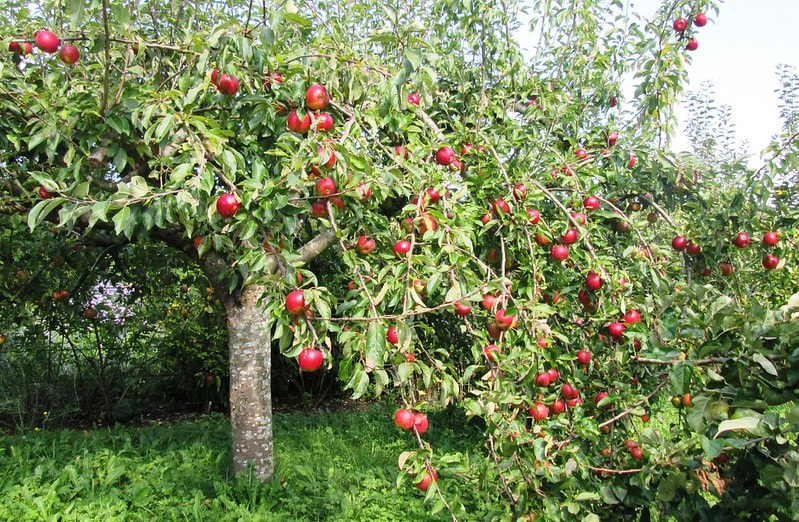|
Fruit trees were very important in the Jewish culture. In fact, on the 15th of Shevat (the 11th month) they celebrate "The New Year for Trees," known as Tu b'Shevat. Tomorrow is that day, sometimes called Rosh Hashanah for Trees. We see in Deuteronomy 20:19 that people are compared to trees. The chapter includes instructions on how to go to war. God's people were not to cut down fruit trees when they laid siege to a city. The question is asked in Verse 19, "Are the trees people, that you should besiege them?" Fruit trees were planted so that their fruit could be eaten.
The main reason this holiday was established was so that God would be correctly honored with the fruit the trees produced. Leviticus 19:23-25 tells us this: "When you enter the land and plant any kind of fruit tree, regard its fruit as forbidden. For three years you are to consider it forbidden; it must not be eaten. In the fourth year all its fruit will be holy, an offering of praise to the Lord. But in the fifth year you may eat its fruit. In this way your harvest will be increased. I am the Lord your God." The purpose of the new year is for calculating the age of trees for tithing. Each tree is considered to have aged one year as of the 15th of Shevat. If you plant a tree any time before the 15th of Shevat it begins its 2nd year on the 15th. But if you plant a tree two days later, for example, it does not reach its 2nd year until the 15th of Shevat the following year. What does this mean for us? When Jesus spoke to His disciples, He told stories to make His point. It was common for Him to talk about trees and compare them to humanity. In Matthew 7:15-20 He warned His disciples to watch out for false prophets. How were they to recognize them? They would do so by the fruit they produced. Good trees bear good fruit, but bad trees bear bad fruit. He repeats this theme of judging a tree by its fruit in Matthew 12:33. "Make a tree good and its fruit will be good, or make a tree bad and its fruit will be bad, for a tree will be recognized by its fruit." In Psalm 1 we are compared to fruit trees and told that the Lord blesses those who delight in His law and meditate on it day and night. "That person is like a tree planted by streams of water, which yields its fruit in season and whose leaf does not wither—whatever they do prospers." (Psalm 1:3) Verse 6 tells us that "The Lord watches the way of the righteous." The prophet Jeremiah repeats this theme. "But blessed is the one who trusts in the Lord, whose confidence is in Him. They will be like a tree planted by the water that sends out its roots by the stream. It does not fear when heat comes; its leaves are always green. It has no worries in a year of drought and never fails to bear fruit." (Jeremiah 17:7-8) What we take in impacts our fruit. We need to be all about producing strong roots through our faith and commitment to the Lord, for strong roots produce good fruit. What we partake of can produce nourishment which strengthens us. Let's be aware of what we are eating and drinking. It is the Word of God and the Living Water that strengthen our roots and help us to grow in righteousness. Righteousness needs to be our foundation. We must ask ourselves, "What kind of fruit are we producing?" Are we producing a crop that will feed the next generation? What kind of "trees" are planted in our fields? Are they bearing good fruit, or do they need to be cut down? The Lord is our Righteous Savior (Jeremiah 23:6)—Jehovah Tsidkenu—"The Lord our Righteousness." As we partake of Him, our Daily Bread and our Living Water, we will produce a bounty of good fruit. |
Joan E. MathiasCategories
All
Archives
July 2024
|

 RSS Feed
RSS Feed